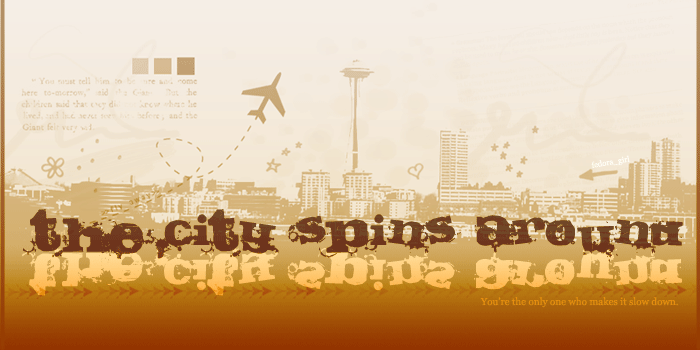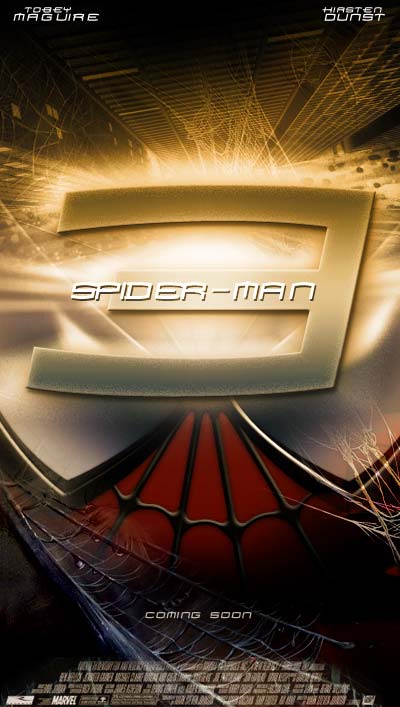Thursday, July 13, 2006
Black Holes & Revelations
 The Americans just don't get it.
The Americans just don't get it.Muse is a band that draws sharply divided critiques, depending on which side of the Atlantic they originate from. An apposite example would be its latest LP Black Holes and Revelations. Most critics from the British Isles lauded it as an ambitious, grandiose piece of work that explored new soundscape horizons. The Yanks just remarked it to be pompous and perposterous. Who is right? I admit that one hardly aid one's own cause when one of your songs is ludicrously named Knights of Cydonia, but having said that, there is plenty to like in an effort that is, patently, Muse's most accessible to date.
Muse has always come across like The Bends meets Bohemian Rhapsody. A band that, somehow, decided OK Computer wasn't epic enough and so decided to go totally daft on synthesised orchestrations, keyboard flourishes and ear-splitting Metallica arpeggios. From its debut Showbiz to its last album Absolution (which finally broke America), Muse has never strayed from this modus operandi. Indeed, its sound has only gotten progressively tighter, more epic and arguably more over-the-top. It was something you either bought wholeheartedly or just despise. For me, the same old approach was approaching its sell-by date and beginning to sound rehashed to death. It was with much trepidation then, that I approached their latest.
The opener, Take A Bow, started (relatively) understated enough. Full of swirling keyboards and syntheised beats, with nary a guitar in sight, Matt Bellamy proceeded to mumble (rather than to typically screech) his indecipherable lyrics through a meat grinder. "Hmmm, something new, this could be promising...", I told myself. And then, of course, a wall of epic guitars comes crashing into the picture and it's "Same old, same old" then. A leopard just couldn't change its spots, could it? Maybe. Maybe not.
So I was rather surprised by the next track Starlight. Opening with the sound of grinding guitars, the delicate sounds of a piano then breaks the monotony and adds a pop touch that's almost brave, considering the source. It's Keane with guitar bite. It's pop. But most importantly, it's different.
Starlight is followed by the album's first single, the surprisely sexed-up Supermassive Black Hole, where crunching funk is met by Bellamy's Prince-impersonating falsettos. It's a form that Muse has never allowed its musical beast to take shape in and it's quite refreshing. Map of the Problematique continues in the vein of experimentation, sounding like a twisted Depeche Mode, only that David Gahan's masculine baritone is replaced by Bellmay's sinewy shrieks. And the sound is still even more densely layered than Depeche Mode would usually have it. It's still typical Muse overblown work but hey, it marks an offbeat approach.
After the strong opening, it is almost inevitable that the middle might seem to sag in comparison. Soldier's Poem, despite having its heart in the right place, sounds like a filler. Invincible is Muse-by-numbers. And then Assassin comes crashing in.
Assassin opens with (overly) aggressive guitar licks that left me groaning, "So they don't change, do they?" Well, they don't. But Assassin does have a chorus to die for. It's the closest they have come to (besides Exo-Politics) in replicating the formative baby-steps sound of their debut. And it's pretty good. One really does have to look at the fact that only two songs might sound like they have come from their debut that this band has progressed.
I have to disagree with critics who said that the album ends on a strong note. City of Delusion, despite surprising me with acoustic guitars, sounded like a typical Muse track by its end. Hoodoo is not worth mentioning and while Knights of Cydonia had many a critic proclaiming it to be Muse at their imperious best, to me it is simply an impervious mess. Forging a musical equivalent of a fantasy novel by creating a soundscape replete with galloping horses and what-have-yous might sound great on paper but on execution, it's just plain daft. This might explain why I'm not a Rush fan.
Muse is a band you either like or hate. It's rarely just an "ok". But Black Holes and Revelations sees the band creating a relatively more palatable sound that might reach and grab a larger audience for its music. Although the move has alienated some of its core listeners (these are the same people who would call Starlight and Supermassive Black Hole unpleasant sell-outs and adore Assassin to death), it is a sound strategic move that has also seen the band produce its strongest work yet.
Now, as to the question why American critics still do not dig Muse. I can only offer this theory. For too long, the Americans seem to mostly value truth, honesty and sincerity in their music. Which must be why they seem to more eagerly embrace earnest singer-songwriter types/bands and punk bands. This is also the main reason why American audiences usually seem to reject the more arch Brit bands such as Blur and Pulp in the past (Is Franz Ferdinand liked more by the Yanks for their infectious post-punk dance disco or their supreme archness?).
When it comes to Brit bands that sing about ridiculous stuff like aliens and flying saucers, the Americans simply scratch their heads and go "duh?!". Music does not always have to be rooted in reality. OTT imagination/theories can be as potent a muse as everyday occurrences/stories, and just as good.
But hey, the Americans just don't get it.
8/10
Batman spun on 9:20 AM.












